A Discussion with Mr. Henderson: Race and the CAS Program in Allderdice
Earlier this year a plan was proposed by Kashif Henderson, the coordinator of the gifted and talented program in the PPS school district, that was meant to encourage low-income students to take the AP test in the AP classes they took. This plan would pay for the tests of students that qualified for free or reduced lunches. However, if they decided to not take the AP test in the AP classes they took, this plan hoped to push these students out of the classes. Unsurprisingly, this plan faced extreme backlash from staff and parents alike who criticized it for its ability to hurt the students it was trying to help.
Despite the negative reception to his most recent plan, Mr. Henderson has enacted other plans throughout his position as the gifted and talented coordinator that have served to help students in minority groups, most notably black kids, get into the CAS program. But at the same time, he is responsible for the slow removal of CAS history classes that is currently happening at Allderdice.
It’s clear that Mr. Henderson is a man of great controversy, someone who has enacted changes in the PPS district that have been both praised and heavily scrutinized. So when the Black Student Union (BSU) invited Mr. Henderson to speak at one of their meetings, it seemed necessary to talk to him and make an attempt to understand his motivations and the effect that they will have on the future of the gifted and talented programs of the PPS District.
Mr. Henderson walked into the BSU room with a large smile on his face and almost immediately began joking around before taking his seat at the front of the room. Shortly thereafter, Mr. Henderson began to describe who he was and how he had gotten into his role as a gifted and talented coordinator: after working as a social studies teacher in the district at Brashear, he eventually moving up the CAS rankings until he got his current position.
Mr. Henderson continued, discussing the CAS program itself. He believes that the CAS program is a helpful tool for students that not only challenges them but also, because of its weighted benefit, looks good on college applications. Despite the benefits of this program, there aren’t a large number of students of color who take CAS classes and therefore miss out on the benefits given by this program. Any student of Dice would be able to easily confirm this through their own experience. CAS classes have a higher amount of white kids and kids from higher-income families while PSP classes have the complete opposite situation.
The major reason why the CAS program has such a high population of white upper-class kids in it has to do with the way that the gifted program functions in elementary schools. Kids who get into the gifted program in middle school automatically are put into the CAS program once they get into high school. The problem with this is that a majority of kids who are in the gifted program in middle school are white, upper-class, or both. This is because the district doesn’t really heavily advertise the program itself so a large number of parents whose kids are in it have only found out about it through other parents. This is a problem because the parents who already know about it tend to be in white upper-class families. This creates a circle of information about the gifted program that black families are often left out of due to their children not attending the same schools as these white upper-class kids. On top of this exclusion, there are other contributing issues such as counselors possibly not suggesting black kids for the gifted program due to racial biases. All these reasons compile together to create an uncomfortable racial disparity between black and white students in the gifted program that continues into high school.
Henderson also had a lot to say during his discussion with the BSU and throughout the discussion and would often go off-topic from a question that was being asked on long passionate rants about issues like systemic racism. But despite these rants it never felt like he truly went off-topic, even if he clearly did, because with this rants he was able to tie together the issues that affect the black students of the PPS district that make them a small minority in talented and advanced classes and the higher amounts of punishment they receive in the district to the larger issues of racism in our society.
There are many obstacles that black students face, not just at Allderdice but in the PPS district and the United States as a whole, in school that a majority of white students don’t. Collectively all these obstacles make it harder for these students to get into CAS classes or even do well in school in the first place. The unconscious bias that some staff members may have led to a situation in which Allderdice punishes kids of color at much higher rates than their white peers. According to counselor Mr. Hall, who was also at the BSU meeting when Mr. Henderson visited, “38% of the Allderdice student body is students of color yet around 75% of the punishments (detention, suspension, expulsion, referral, etc.) given out by staff members are for this smaller part of Allderdice’s population.” This attitude of seeing black students as troublemakers creates a cycle of “bad behavior” where black kids and kids of color in general in our school are treated as more likely to behave worse and therefore are punished at higher rates which can be responsible for feelings of alienation; these students believe that no matter what they do they will be punished.
While much of what Mr. Henderson said seemed to be agreed upon by a majority of the people at the meeting there was one point that was brought up that had a more controversial reaction. When asked about the elimination of several CAS history classes and the reasons for this action, Henderson said that the removal of these classes is being done to encourage more kids to take AP classes which will hopefully make the advanced classes more diverse. The problem with this is that, as BSU sponsor and AP teacher Ms. Halloran mentioned, the diversifying of the advanced class has yet to happen. She says that her AP Government and Politics class that is open to a freshman is still majority white and/or upper-class. From my own personal experience in AP World History last year, a course which had its CAS alternative removed, I was the only black kid in my class and one of the two kids of color in that class.
Mr. Henderson talked about a lot in this meeting from issues like systematic racism to issues involving the CAS program and the intersection of both. While the student body and staff of Allderdice may not agree with everything Henderson does, for valid reasons, it is clear that he genuinely seems to care about providing more support and opportunities for the students in our school who are rarely given them.

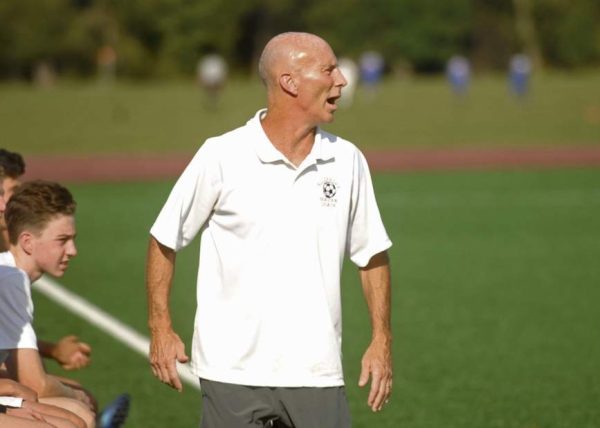
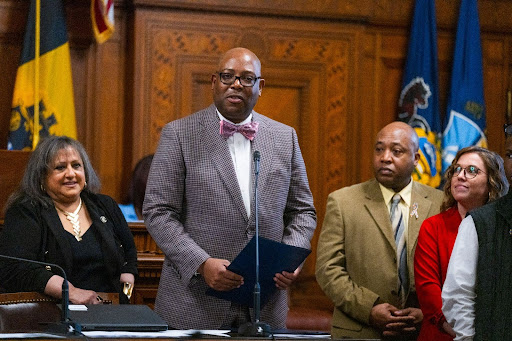
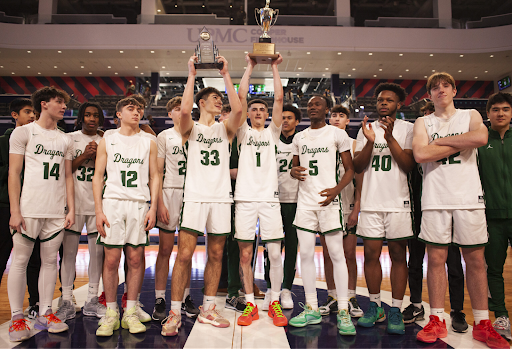








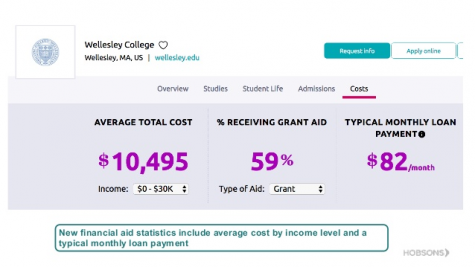
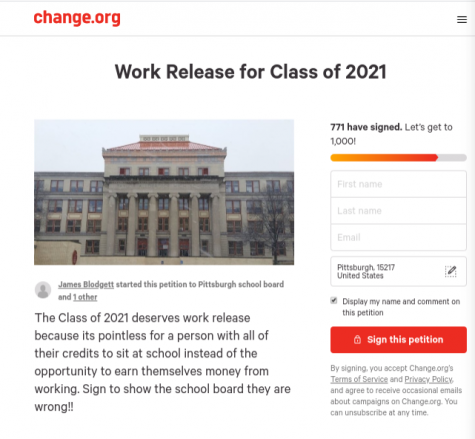
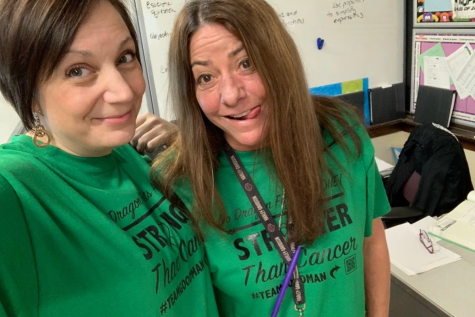
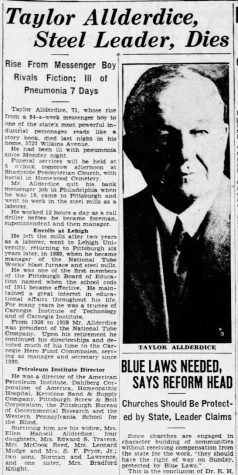

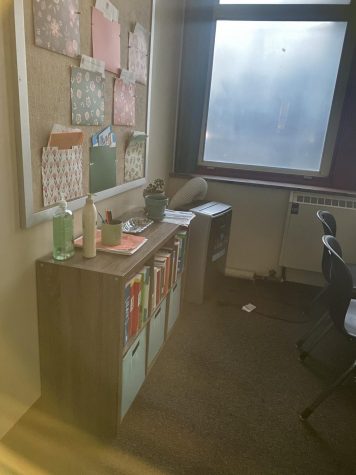
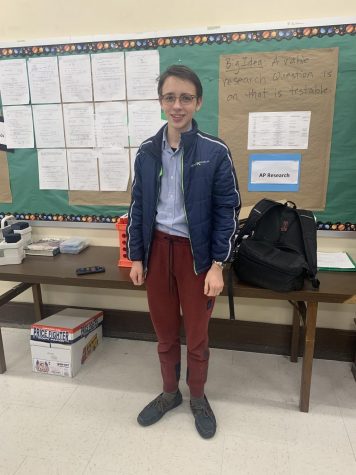
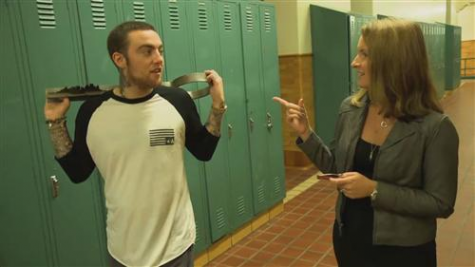
Erika L Freiberger • Apr 10, 2020 at 1:55 pm
Dear Dakota, Tackling the equity issues at Allderdice has been paramount to so many people, for so long. Your article is timely, thoughtful and well-researched. I have forwarded it to several parents and organizations that are interested in putting an end to the segregated PSP/CAS programming. Grateful to have your voice. Excellent job.